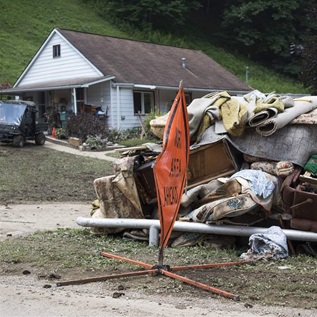State-Facilitated Retirement Savings Programs Are a Necessary Lifeline for Private Sector Workers

For millions of Americans, an unexpected expense or a sudden loss of income can severely impact their household’s balance sheet. In fact, each year more than half of U.S. households experience at least one financial shock, such as a major medical bill, and many are unable to cover those expenses. These financial shocks can be even more difficult for low-income families and households of color, who often have fewer resources to cushion against financial adversity. Some people withdraw money from their retirement savings to make up the difference.
Retirement savings, of course, are important not just as a last-resort source of income to pay for unanticipated expenses: Their primary purpose is to help employees prepare for their retirement. Yet millions of workers, and at least one-third of private sector employees, don’t even have access to retirement plans at their jobs. One innovative way to solve this problem: the growing number of state-facilitated retirement savings programs.
These programs, known as auto-IRAs, allow employees to automatically contribute their own earnings to an individual retirement account (IRA) through voluntary payroll deductions, and can be a vital lifeline for workers. They can also ease a state’s financial burden, which ultimately benefits taxpayers.
Consider Pennsylvania. A 2018 study found that employees’ insufficient retirement savings has led to every county in the Keystone State experiencing increased public assistance costs, reduced tax revenue, decreased household spending, and lower employment. The price tag for Pennsylvania taxpayers of these savings deficiencies? An estimated $15.7 billion over 15 years.
Now, forward-thinking Pennsylvania policymakers are working in a bipartisan manner to pass Keystone Saves, a state-facilitated retirement savings program. If passed, Keystone Saves would give more than 2 million private sector workers access to an auto-IRA plan. Participants could withdraw their voluntary contributions at any time, tax- and penalty-free—especially helpful in an emergency.
The cost to employers and small businesses of Keystone Saves? Zero. Employers would provide their employees this retirement program—without charge or out-of-pocket cost—by setting up a simple payroll deduction, a major advantage for businesses in a tightening economy and labor market. And the benefit to Pennsylvania taxpayers? Keystone Saves would help reduce that $15.7 billion state fiscal burden.
Pennsylvania is not alone. Hawaii is also considering implementing its own program to prevent $1.7 billion in safety net spending on residents 65 and older over the next 20 years. This novel approach to helping private sector workers save for retirement is gaining momentum across the country: Ten states—California, Colorado, Connecticut, Illinois, Maine, Maryland, New Jersey, New York, Oregon, and Virginia—have already adopted similar programs.
And employers in those states that don’t already provide retirement benefits are embracing these plans, signing up the first chance they get. Why the demand? Research by The Pew Charitable Trusts reveals that many employers want to offer retirement benefits to their workers but have held back because of high startup costs and limited administrative capacity. Some who welcomed the advent of auto-IRAs in their state said they see offering retirement benefits as a way to attract and retain workers, and 67% of those who supported auto-IRAs simply said that such a program “would help my employees.”
Pew’s data shows that these programs are popular with employers even in states where they haven’t yet been introduced. For example, in 2017, Pew surveyed small-business owners throughout the country, asking their opinion of the idea of an auto-IRA program. Overall, 87% of those without their own plan either somewhat or strongly supported this kind of initiative, with 27% stating that they would be very supportive. That’s a positive signal to policymakers weighing such initiatives.
Americans want to build a secure retirement. But that’s often not possible if they work for an employer that’s unable to offer a retirement plan. State-facilitated retirement programs—which states can design to best fit the needs of workers, employers, and taxpayers—are an innovative and practical solution to the challenges that employers, especially small businesses, face in this tightening economy, all the while reducing workers’ reliance on government-funded programs. Most important, these programs will help workers who have the least margin for error to navigate financial shocks—workers with low incomes and workers of color.
This op-ed was first published in The Hill on March 23, 2022.
John Scott is the director of The Pew Charitable Trusts’ retirement savings project.












